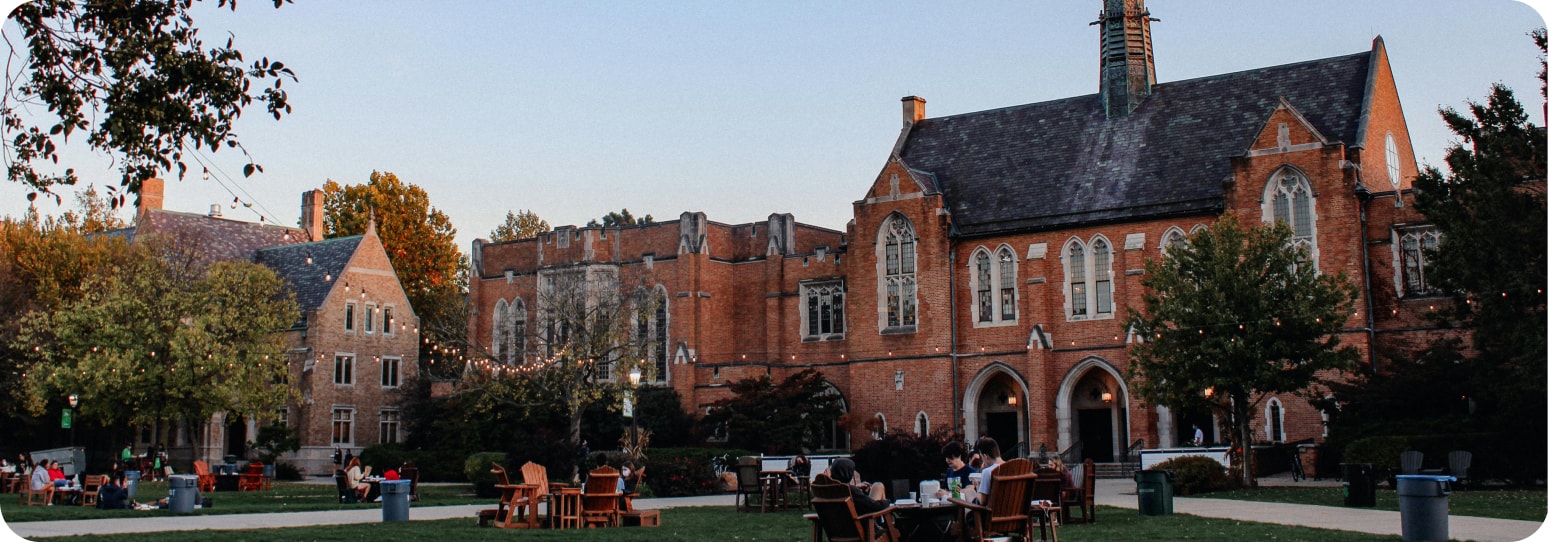Essential Apartment Hunting Tips for Your First Time Off-Campus
Essential Apartment Hunting Tips for Your First Time Off-Campus
Introduction to Apartment Hunting
Starting your apartment search can be overwhelming with so many options available. It is important to consider factors like location, budget, and amenities to narrow down your choices. As a student, you will want to focus on finding an apartment that fits your college experience and lifestyle. Researching online and talking to friends, relatives, or family members who have gone through the process can be a great resource. Begin by making a list of your priorities, such as proximity to campus, safety, and amenities like a gym or pool. Understanding the basics of apartment hunting, such as knowing what essential items or foundational knowledge you'll need, is also crucial. Also, consider the neighborhood and community; a great option might be an apartment in a quiet area with easy access to public transportation.
Understanding Your Needs
Take some time to think about what you need in an apartment. Decide whether you want a roommate or prefer to live alone. Consider your budget and figure out what you can afford to pay in rent and utilities each month. Think about the amenities that are must-haves for you, such as a dishwasher or in-unit laundry. If you are a freshman, you may want to look into accommodation options that offer additional support and resources. Additionally, consider the length of the lease and whether you will need to sublet your apartment at any point.
Researching Apartments and Houses

Once you have an idea of what you are looking for, start researching apartments and houses in your desired area. Look for apartments that are specifically marketed towards students or offer amenities like study rooms or tutoring services. Check out online reviews and ratings from other renters to get a sense of the landlord and the property. It is important to consider factors like safety and security, as well as the overall condition of the property. Make a list of questions to ask the landlord or property manager, such as what utilities are included in the rent and whether pets are allowed.
Virtual Tours and Online Tools
Exploring off-campus housing options has never been easier, thanks to the rise of virtual tours and online tools. These resources are a great way for students to get a real sense of an apartment’s space, layout, and amenities without having to visit each location in person. Many universities and property managers now offer 3D floor plans, video walkthroughs, and even virtual reality experiences, allowing you to tour apartments from the comfort of your current home or campus. These tools can help you narrow down your search, compare different housing options, and make informed decisions about where you want to live. By taking advantage of these online resources, students can save time, stay organized, and feel confident about their apartment choices before ever stepping foot inside.
Working with Real Estate Agents

If you are having trouble finding an apartment on your own, consider working with a real estate agent who specializes in rentals. They can help you navigate the process and find an apartment that fits your needs and budget. Be sure to ask about their fees and what services they offer, such as help with the lease or finding roommates. A good agent can be a great resource and help you find an apartment that you will love. Don’t be afraid to ask questions or seek a second opinion if you are unsure about anything. If you need assistance or have any questions, contact a housing service or real estate agent for support.
Evaluating Properties
When evaluating properties, consider factors like the condition of the apartment, the amenities, and the location. Think about how you will get to campus and whether you will need to use public transportation. Check out the neighborhood and talk to neighbors to get a sense of the community. Consider the overall value of the apartment and whether it is a good deal. Don’t forget to conduct thorough walks through each room during your walk-through, making detailed notes and taking photos to document the apartment's condition for future reference.
Accessibility and Special Needs Accommodations
For students with disabilities or special needs, finding the right off-campus housing is an important part of the college experience. Many apartments near campus are designed with accessibility in mind, offering features like wheelchair ramps, roll-in showers, and accessible kitchens. If you need specific accommodations, your university’s disability services office can be a great resource, providing assistance and guidance throughout your housing search. There are also local and national services dedicated to helping students find apartments that meet their unique needs. By reaching out to these resources and contacting property managers directly, students can ensure their living space is comfortable, inclusive, and supportive—allowing them to focus on their studies and enjoy college life to the fullest.
Understanding Leases and Contracts
Before signing a lease, make sure you understand all of the terms and conditions. Ask questions about the length of the lease, the rent, and any fees or penalties. Consider whether you will need to purchase renter’s insurance to cover your belongings. Make sure you understand your responsibilities as a tenant, such as paying rent on time and maintaining the property. It is also important to know who the property owner is before signing a lease, as this helps ensure you are dealing with the legitimate party and can prevent potential scams. Don’t sign anything until you are sure you understand everything; it is better to ask questions than to risk a dispute later on.
Budgeting and Financial Planning
Once you have found an apartment, it is time to think about budgeting and financial planning. Consider all of your expenses, including rent, utilities, food, and transportation. Make a budget and stick to it to ensure that you can afford your apartment. Consider setting up automatic payments for your rent and utilities to make sure you never miss a payment. Don’t forget to factor in any additional expenses, such as furniture or decorations. Also, check if your security deposit will be returned with any accrued interest, as some landlords are required to include interest when returning deposits.
Utilities and Hidden Costs
When considering off-campus apartments, it’s essential for students to look beyond just the monthly rent. Utilities such as electricity, water, gas, and internet may or may not be included in your lease, so it’s important to ask landlords exactly what is covered. Some apartments offer bundled services, while others require you to set up and pay for utilities separately. Be aware of additional hidden costs like parking fees, laundry expenses, or maintenance charges that can add up quickly. Carefully review your lease and ask questions about any services or fees you don’t understand. By being proactive and aware of all potential costs, students can budget more accurately and avoid surprises, making off-campus living more manageable and stress-free.
Pet Policies and Restrictions

If you’re a student with a furry friend, finding pet-friendly off-campus housing is a key part of your apartment search. Many apartments have specific pet policies, including breed or size restrictions, pet deposits, and monthly pet fees. Before signing a lease, make sure to ask about these rules and any additional costs associated with having a pet. Some universities offer resources to help students find pet-friendly housing options or even provide services like pet-sitting or dog-walking. By understanding the pet policies and restrictions in place, you can ensure your apartment is a welcoming space for both you and your pet, making your college experience more enjoyable and stress-free for everyone involved.
Finding Roommates
If you are looking for a roommate, consider using online resources or asking friends and family for referrals. Make sure you find someone who is responsible and reliable and who will pay their share of the rent on time. Consider creating a roommate agreement to outline your expectations and responsibilities. Discuss things like cleaning and chores, as well as guest policies, making sure to emphasize the importance of being considerate of guests and respecting their schedules and needs. A good roommate can make a big difference in your college experience, so take the time to find someone who is a good fit.
Prioritizing Safety and Security
When it comes to safety and security, do not compromise. Make sure your apartment has working locks, all windows are properly locked for safety, and a secure entry system. Consider the overall safety of the neighborhood and whether there are any concerns. Think about investing in a security system or camera to give you extra peace of mind. Take steps to secure your personal belongings, such as keeping valuables in a safe or using a lockbox. A safe and secure apartment is essential for a positive college experience.
Navigating the College Experience
As a college student, you will want to make sure your apartment fits your lifestyle and schedule. Consider factors like proximity to campus, as well as access to amenities like the gym or library. Think about how you will balance your academic responsibilities with your social life and other activities, especially when managing a busy college schedule. Take advantage of resources on campus, such as academic support or counseling services. A great college experience is all about finding a balance, so make sure your apartment supports your goals and priorities.
Off Campus Housing Considerations
If you are considering off-campus housing, make sure you understand the pros and cons. Think about factors like cost, convenience, and amenities. Consider whether you will need to find roommates or if you can afford to live alone. Research the neighborhood and community to ensure it is a good fit, and look into city-specific resources and programs that may be available in your city, especially in urban areas. Off-campus housing can be a great option for students who want more independence and flexibility.
Freshman Year Housing Tips
As a freshman, you may be navigating the housing process for the first time. Consider starting with a dorm, university-provided housing, or other on-campus housing options to get a feel for college life and take advantage of university resources. Think about factors like cost, convenience, and amenities when choosing a housing option. Research the neighborhood and community to ensure it is a good fit. Freshman year is all about adjusting to college life, so make sure your housing supports your transition.
Housing Options for Students

As a student, you have a range of housing options to choose from, including on-campus dorms, off-campus apartments, and shared houses. Consider factors like cost, convenience, and amenities when making your decision. Families can provide valuable support and guidance as you navigate these housing choices, helping you understand government assistance programs and make informed decisions. Think about whether you want to live with roommates or alone and whether you need any special accommodations. When setting up an apartment, consider purchasing a service (set) of tableware for shared meals with roommates. Research the neighborhood and community to ensure it is a good fit. A great housing option can make a big difference in your college experience, so take the time to find the right one for you.
Making a Decision
Once you have researched your options and considered your priorities, it is time to make a decision. Think about what is most important to you, whether it is cost, convenience, or amenities. Consider whether you are willing to compromise on certain factors in order to get what you want. Trust your instincts and choose an apartment that feels like home. Making a decision can be overwhelming, but with careful consideration, you will find the perfect apartment for your college experience.
What to Expect from Your Landlord
As a tenant, you have certain rights and responsibilities, and you should expect your landlord to uphold their end of the bargain. Make sure you understand your lease and what is expected of you, as well as what you can expect from your landlord. Consider whether your landlord is responsive and reliable and whether they will be available to address any issues that arise. Document everything, including any communication with your landlord, to protect yourself in case of a dispute. If you need cost-saving accommodations, room upgrades, or lease modifications, don't hesitate to request these changes from your landlord. A good landlord can make a big difference in your college experience, so make sure you find one who is responsible and supportive.
Handling Disputes and Conflicts
Unfortunately, disputes and conflicts can arise, even with the best landlord or roommate. Know your rights and responsibilities, and do not be afraid to advocate for yourself. Consider seeking mediation or support from a neutral third party, such as a housing counselor or student organization. Document everything, including any communication or agreements, to protect yourself in case of a dispute. Handling disputes and conflicts can be challenging, but with the right support and resources, you can resolve them and move forward.
Staying Organized
As a college student, it is easy to get overwhelmed with responsibilities and tasks. Stay organized by using a planner, app, or spreadsheet frequently to keep track of your schedule and deadlines. Set reminders and notifications to ensure you never miss a payment or appointment. Prioritize self-care and take breaks when you need them; staying organized is all about finding a balance. A great tool or system can make a big difference in your college experience, so find what works for you and stick to it.
Furnishing and Decorating Your Apartment
Once you’ve secured your off-campus apartment, it’s time to make your new space feel like home. Many students furnish their apartments with a mix of hand-me-downs, thrift store finds, and budget-friendly purchases. Get creative with DIY projects or decorating ideas to personalize your living space and reflect your style. Some universities offer resources and tips for furnishing and decorating, including budgeting advice and design inspiration tailored to student apartments. Whether you’re setting up a cozy study nook or adding pops of color with decor, putting your personal touch on your apartment can make your off-campus living experience more comfortable, inviting, and memorable.
Preparing for Move-In and Move-Out

When it is time to move in or out of your apartment, make sure you are prepared. Create a checklist of tasks to complete, such as cleaning, packing, and setting up utilities. Consider whether you will need any additional support or resources, such as a moving truck or storage unit. Document everything, including the condition of the apartment, to protect yourself in case of a dispute. Preparing for move-in and move-out can be stressful, but with careful planning, you will be ready for whatever comes next. Careful planning can also help reduce worry and stress during the move-in and move-out process.
Seeking Additional Help
If you need additional help or support, do not be afraid to ask. Seek out resources on campus, such as academic support or counseling services. Think about whether you need help with a specific issue, such as a dispute with your landlord or roommate. Reach out to friends and family for support, as they can be a great resource during challenging times. Seeking help is a sign of strength, not weakness, so do not hesitate to ask for what you need.
Conclusion
Finding the perfect apartment can be a challenging and overwhelming process, but with the right resources and support, you can succeed. Remember to prioritize your needs and priorities, and do not be afraid to ask for help when you need it. Consider seeking out additional resources, such as online guides or housing counselors, to support you in your search. Stay organized and focused, and trust your instincts when making a decision. With careful planning and preparation, you will find an apartment that fits your college experience and lifestyle. Happy hunting!
Q: When should I start looking for an off-campus apartment?
Start your search 2–3 months before your desired move-in date. That gives you time to research neighborhoods, compare listings, and schedule tours.
Q: How much rent can I realistically afford?
A good rule of thumb is to keep rent and housing costs under 30% of your monthly income. Don’t forget to budget for utilities, internet, groceries, and other essentials.
Q: What’s the difference between student housing and regular apartments?
Student-focused apartments often include amenities like study spaces, furnished units, and flexible lease terms. Regular apartments may offer more independence and variety but may not cater to student schedules.
Q: What should I ask a landlord before signing a lease?
Ask about what’s included in rent (utilities, internet, parking), lease terms, maintenance policies, pet rules, and any fees or deposits. Also confirm how rent is paid and who to contact for repairs.
Q: Do I really need renters insurance?
Yes—it's typically inexpensive and can protect your stuff from theft, fire, or damage. Some landlords even require it before move-in.